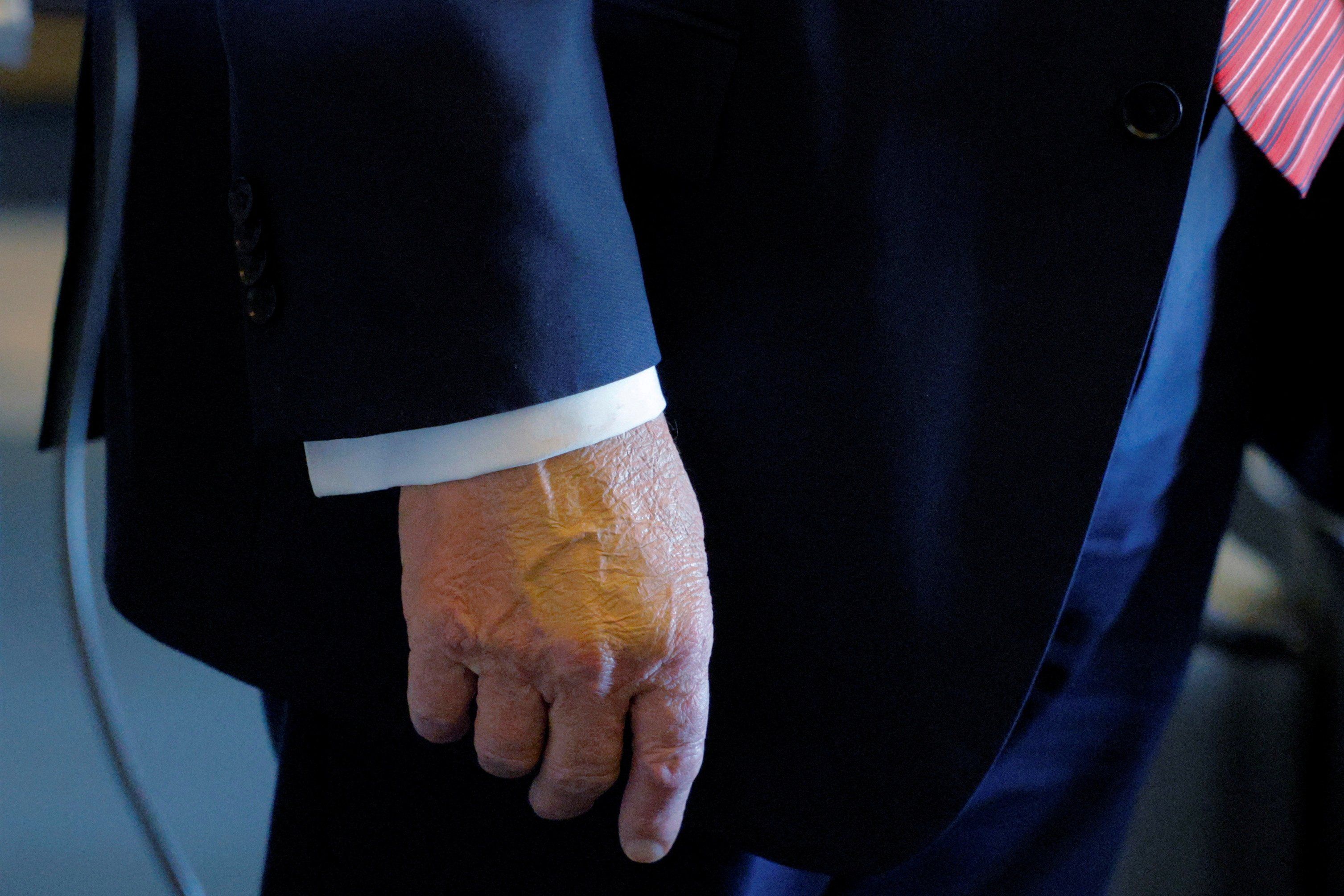A day after the most recent speculation about President Donald Trump's bruised hand and swollen ankles, the White House offered up his doctor's diagnosis: chronic venous insufficiency, which causes blood to pool in the veins.
White House press secretary Karoline Leavitt described the condition as "benign" and claimed, "The president remains in excellent health," but CNN's Brianna Keilar didn't take the diagnosis at face value.
She asked a medical expert how the president's age, lack of cardiovascular activity, and other lifestyle factors could worsen the diagnosis.
"So, it appears that the White House physicians were also concerned about more than meets the eye," said cardiologist Dr. Bernard Ashby, before mentioning the additional tests performed by Trump's doctors, including an echocardiogram and lower extremity ultrasounds.
"Essentially, they were covering all their bases, meaning that they were screening him for heart failure, which is a common cause of lower extremity swelling. In addition to that, they were concerned with increased pressure in his heart."
"Now, taking a step back, looking at the entire case, the president is obese. He is older. And I don't know if he has hypertension, but that's very...common in his age group, particularly with his body habitus. So, when you do have a condition like lower extremity swelling, bilateral, and a diagnosis of venous insufficiency, the question is, is it intrinsic to the veins? Meaning, does the venous insufficiency that he has, is it related to bad valves, or is it related to increased pressure coming from the heart?"
Ashby continued, "Even though he's diagnosed with a benign condition, venous insufficiency by itself doesn't necessarily mean it's benign. The question is, what's causing the venous insufficiency? But I wouldn't take the benign diagnosis on its face."
Watch the clip below via CNN.
